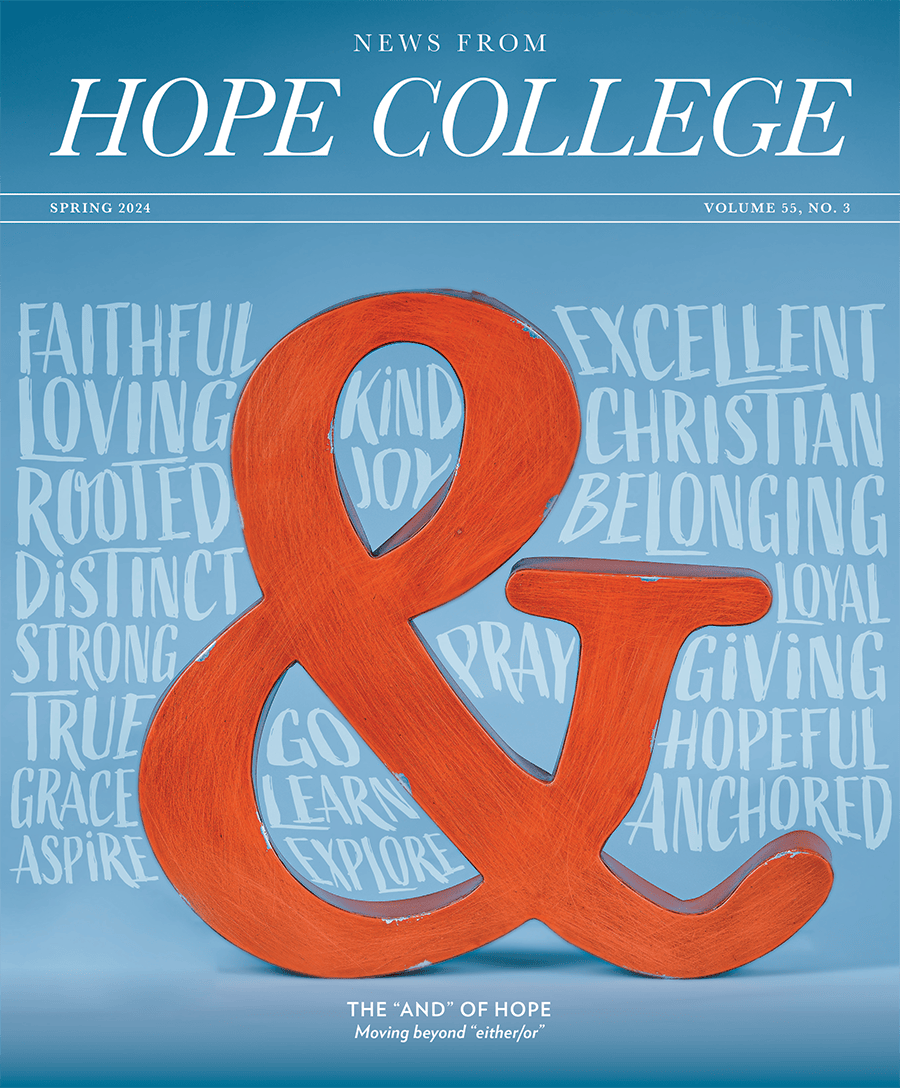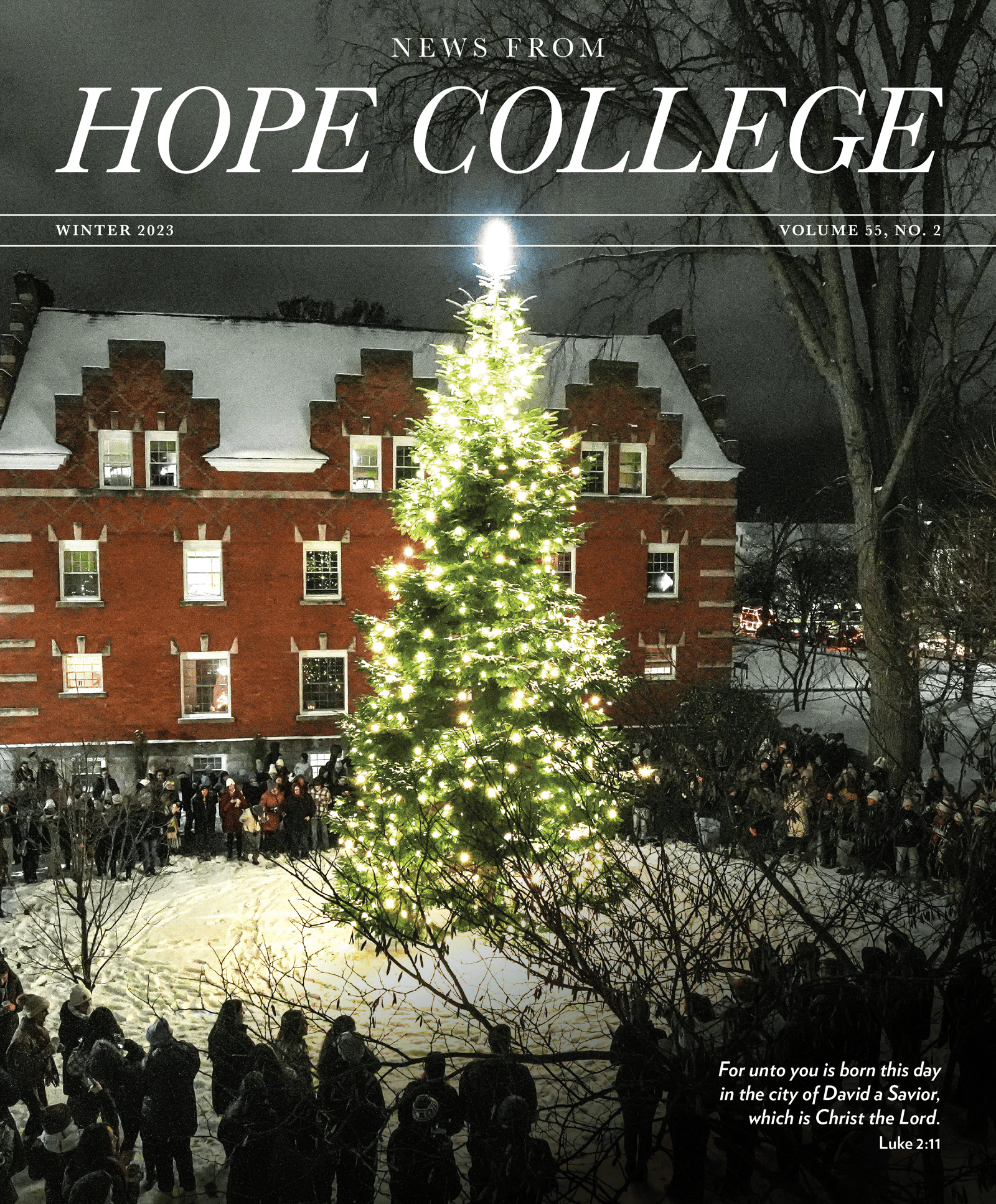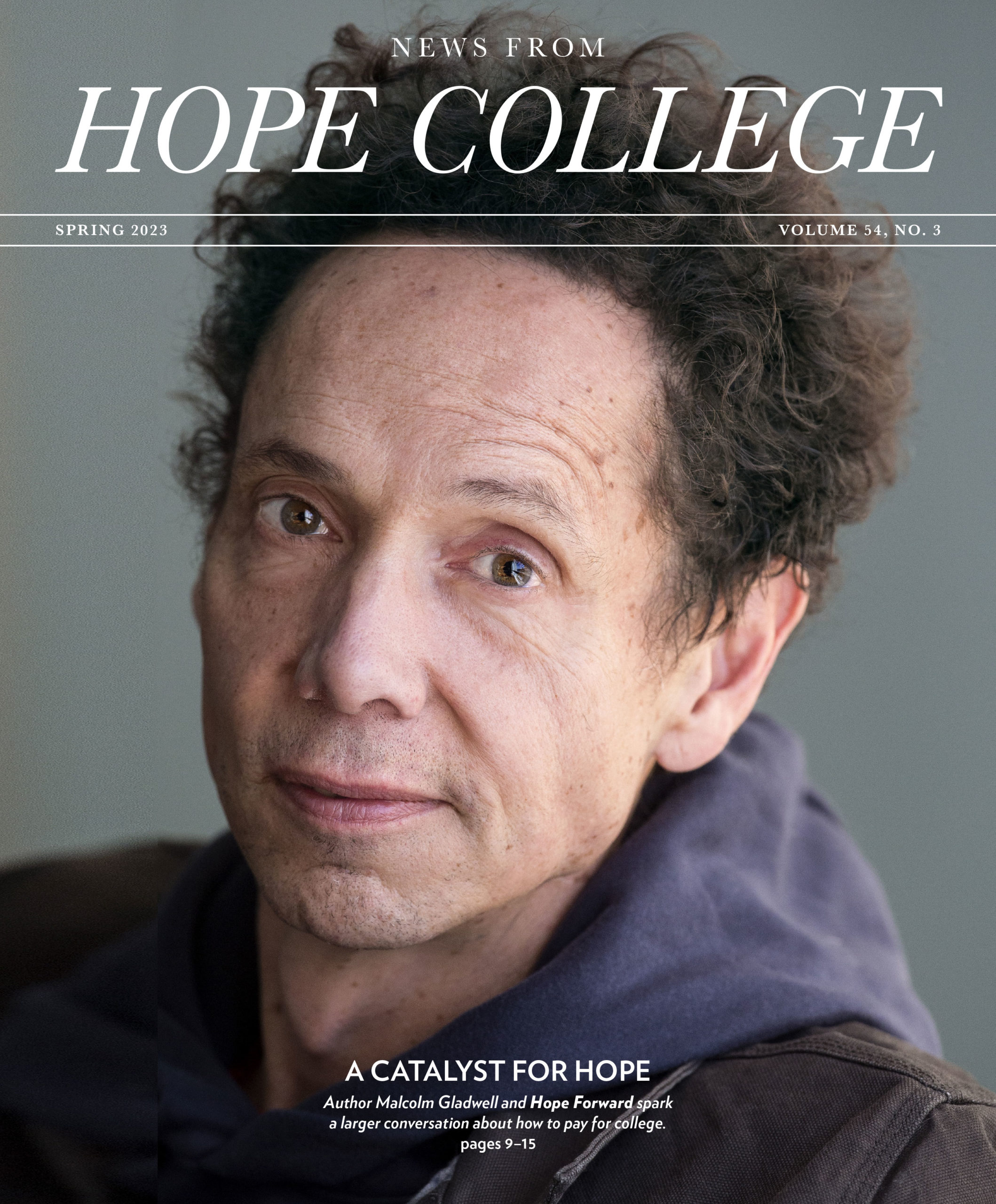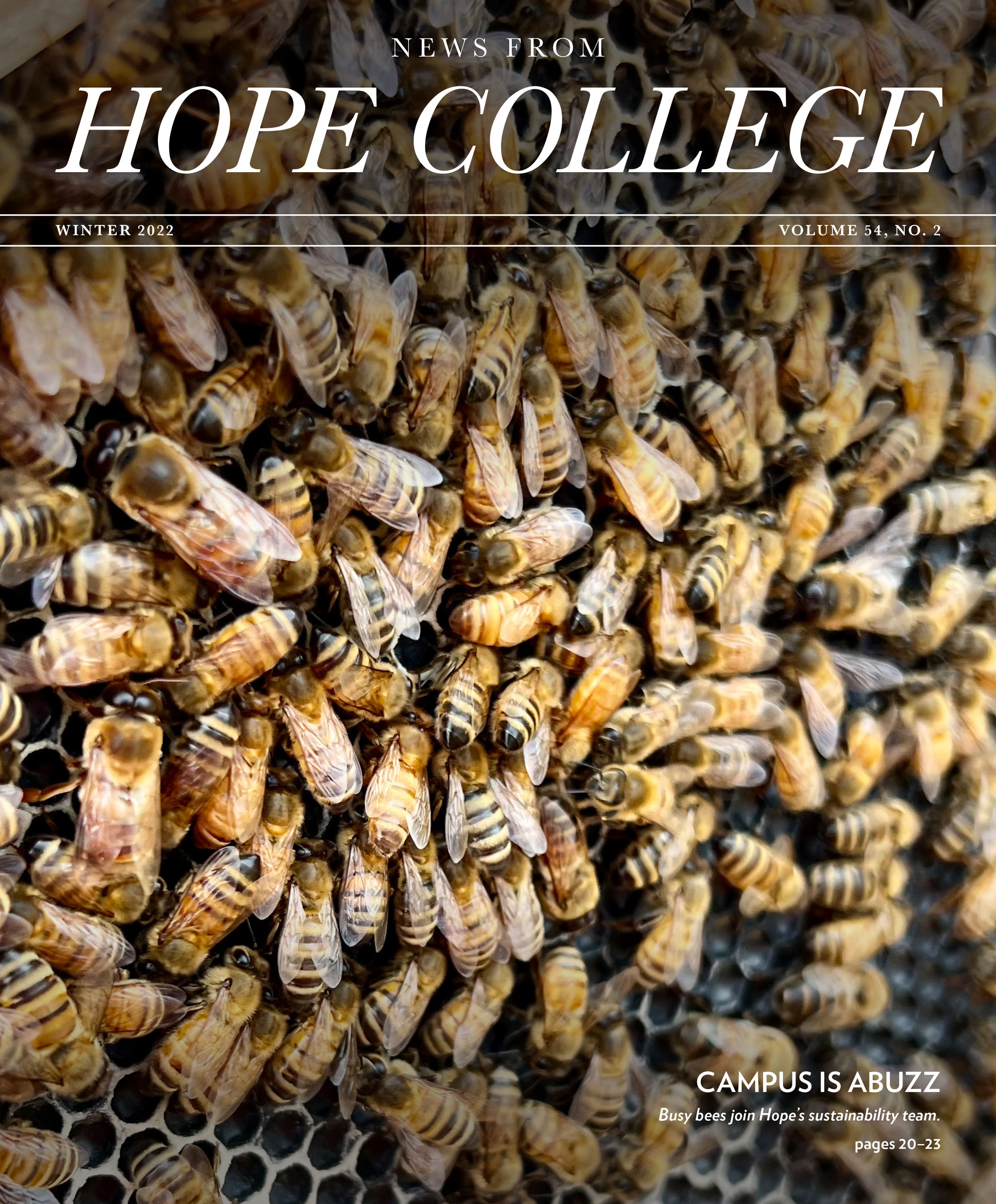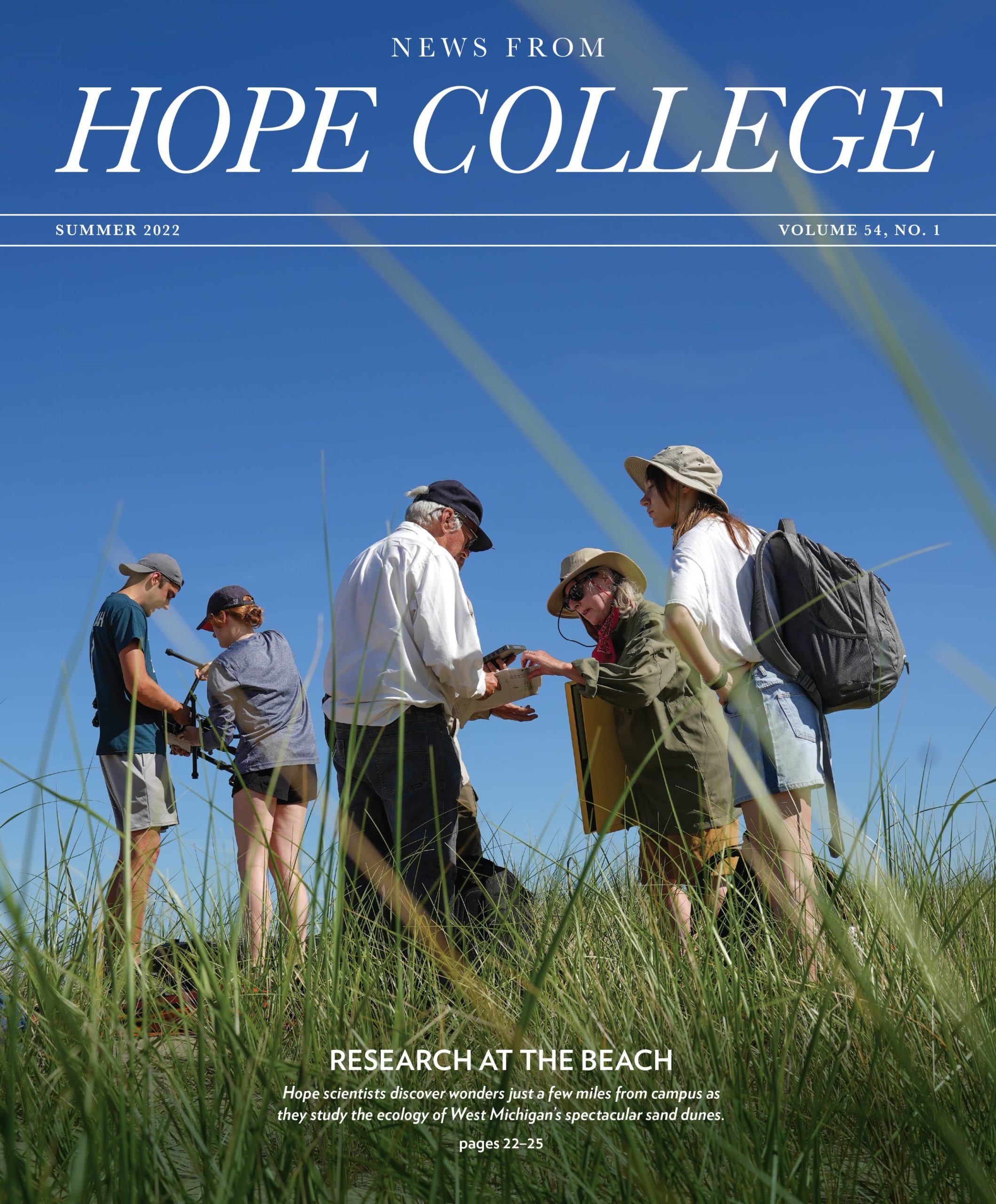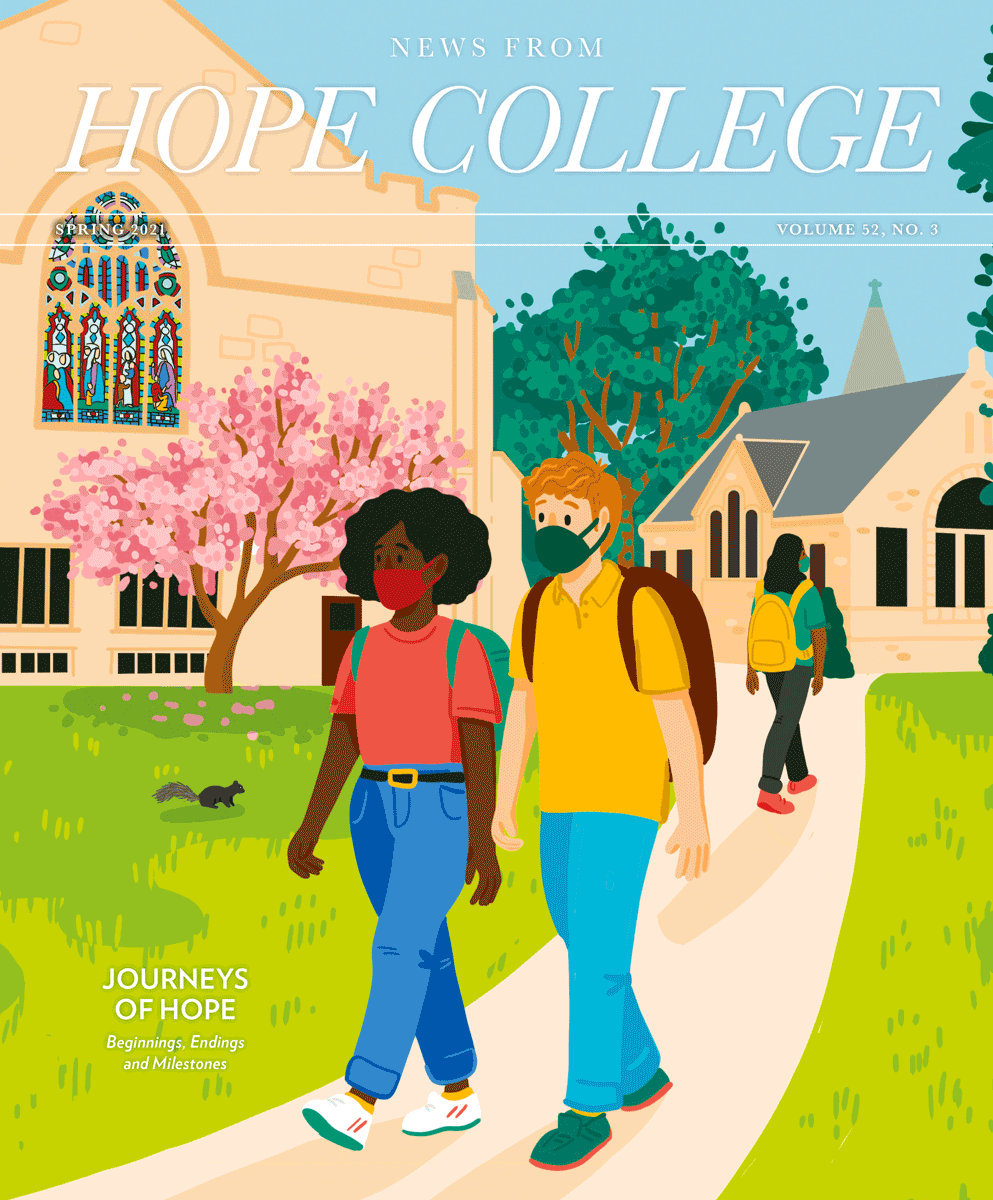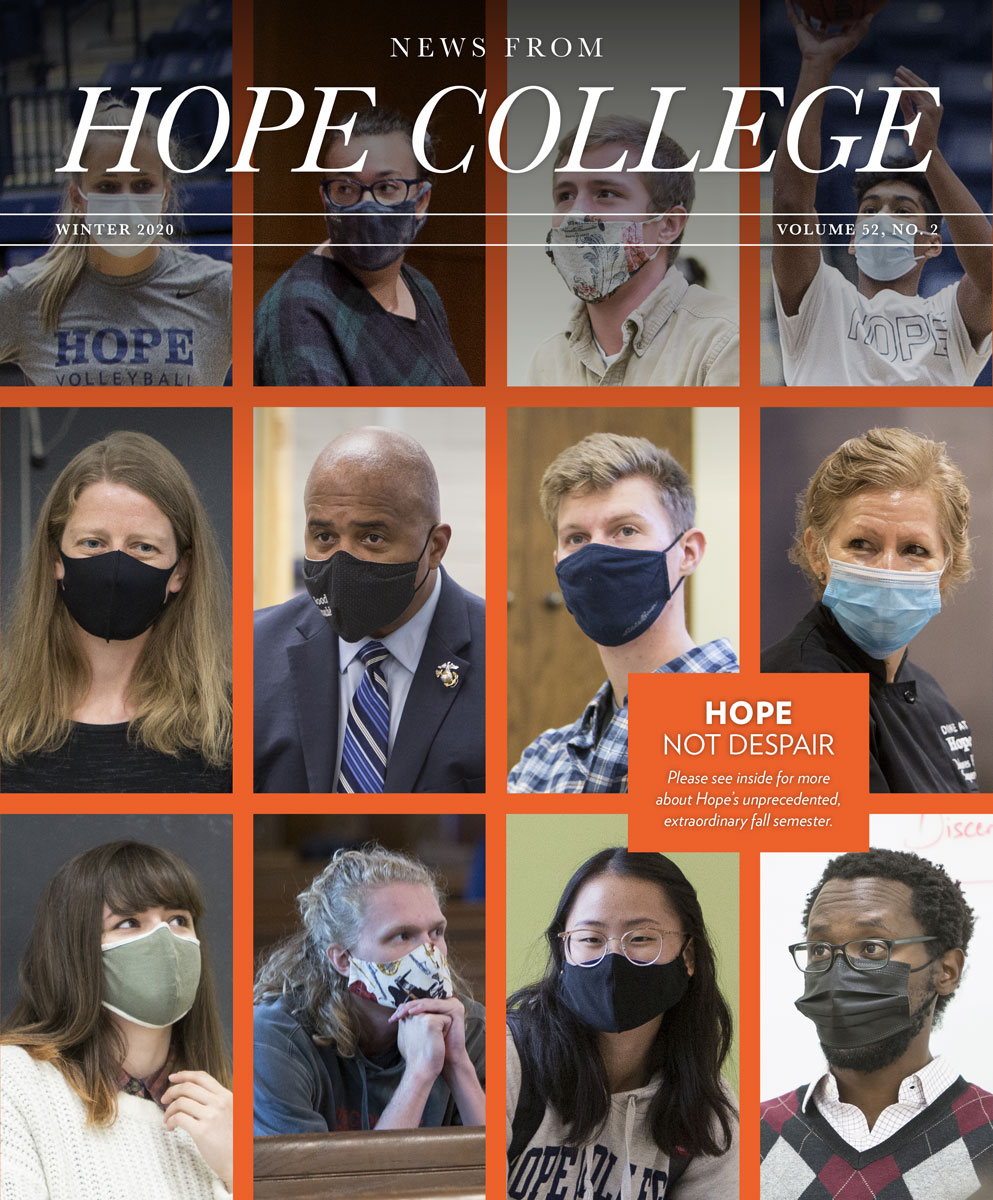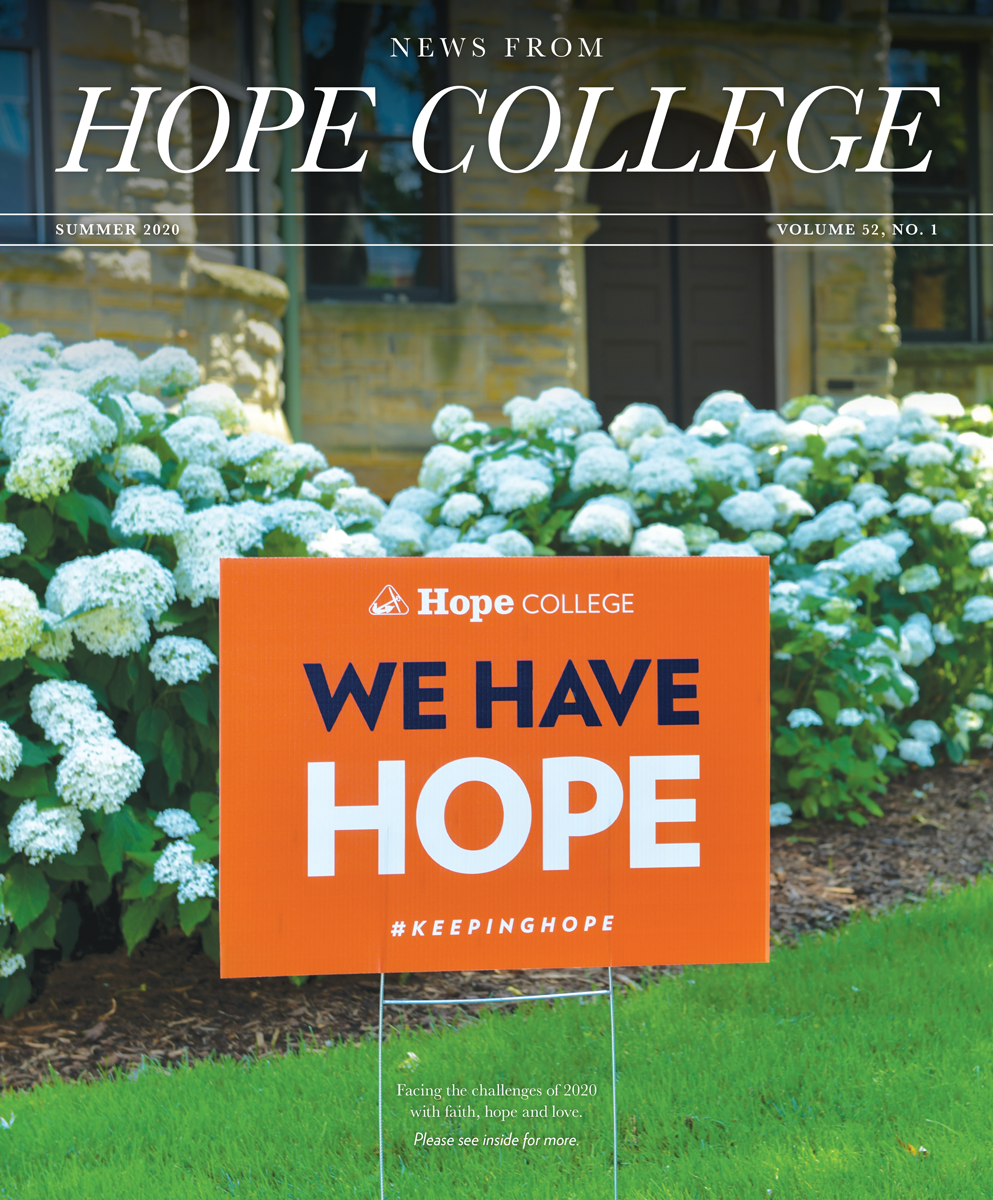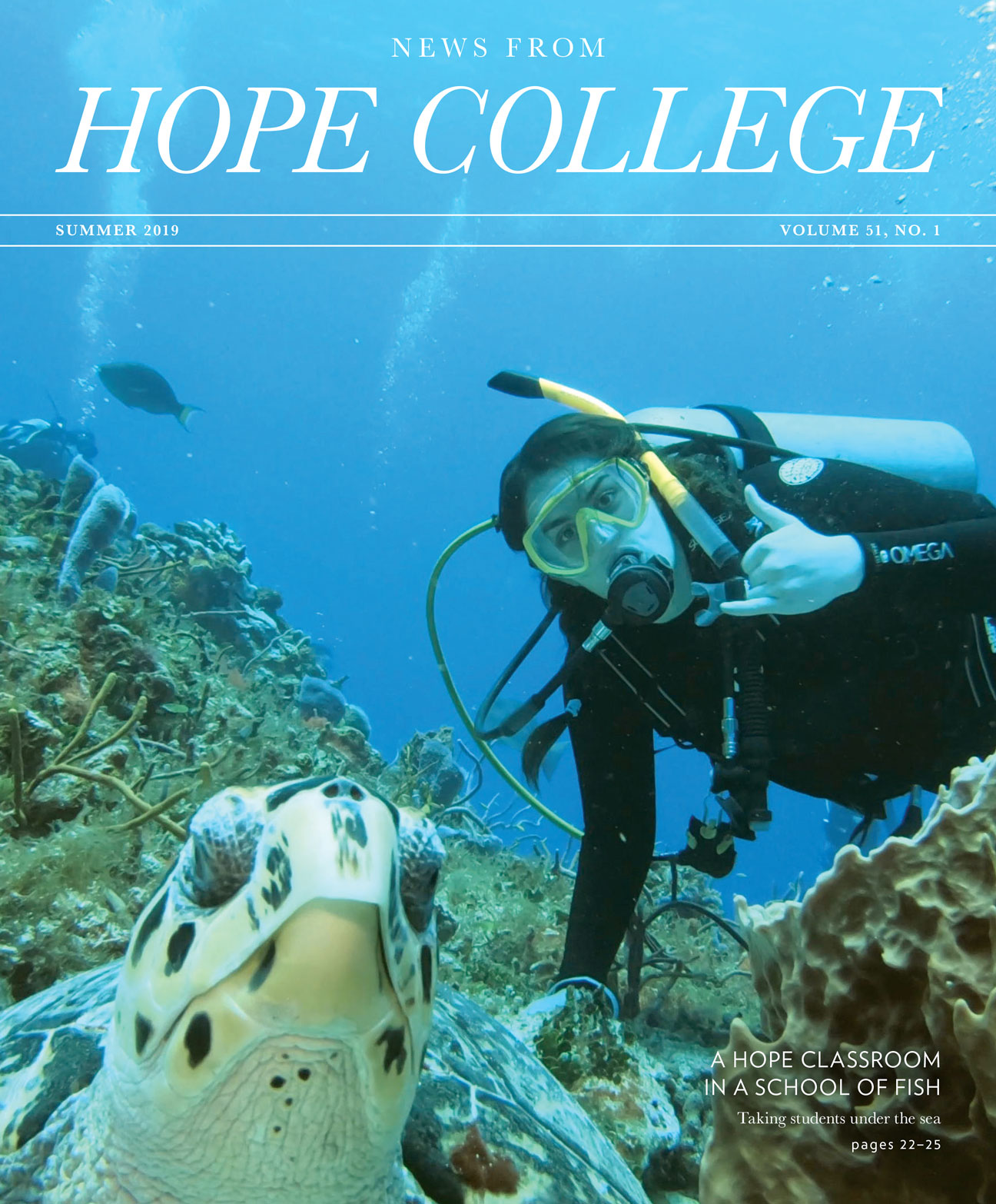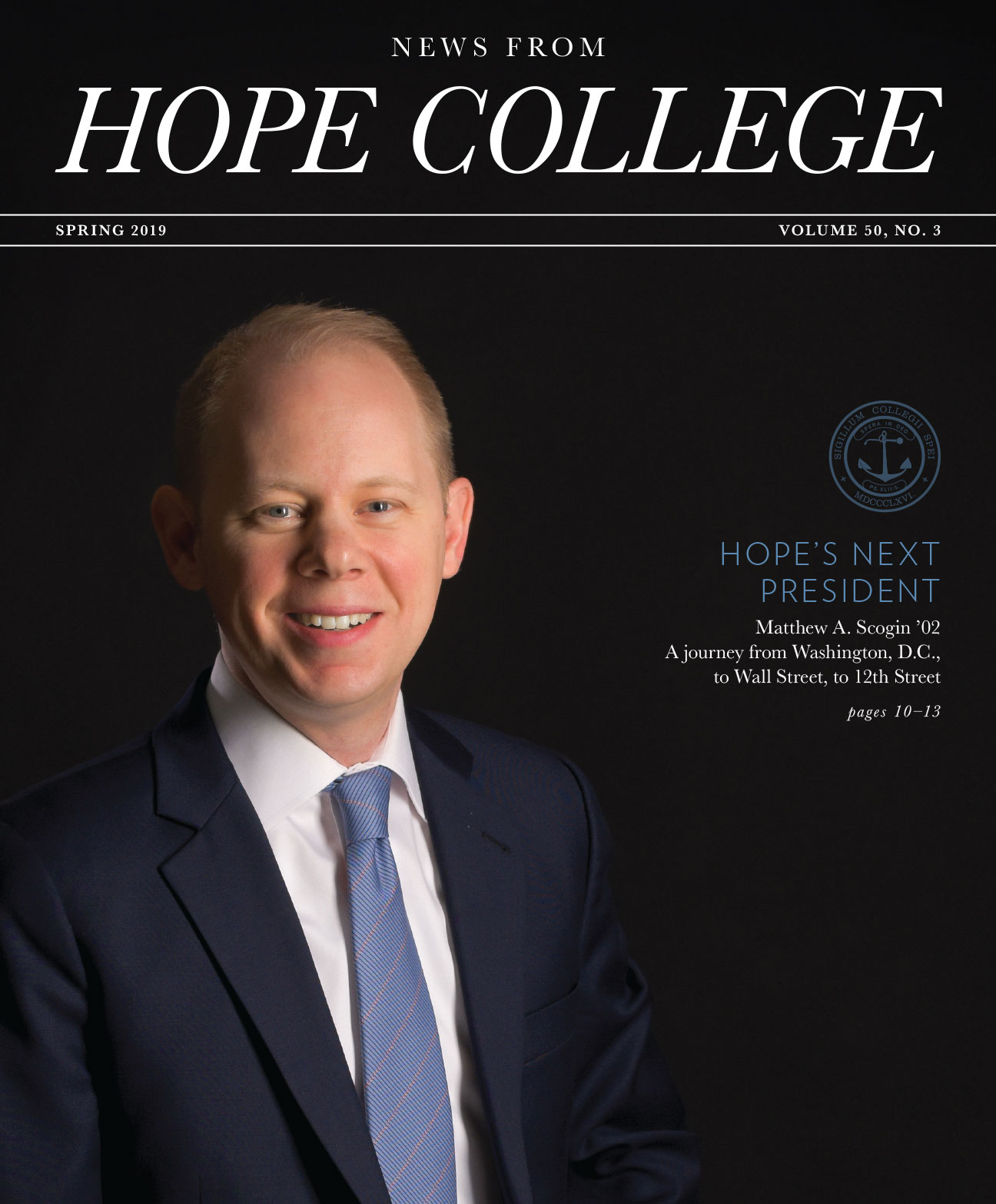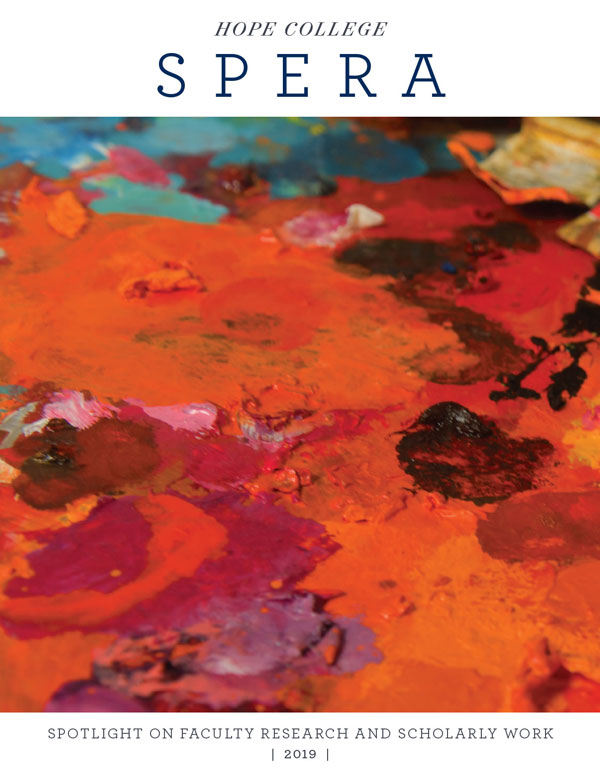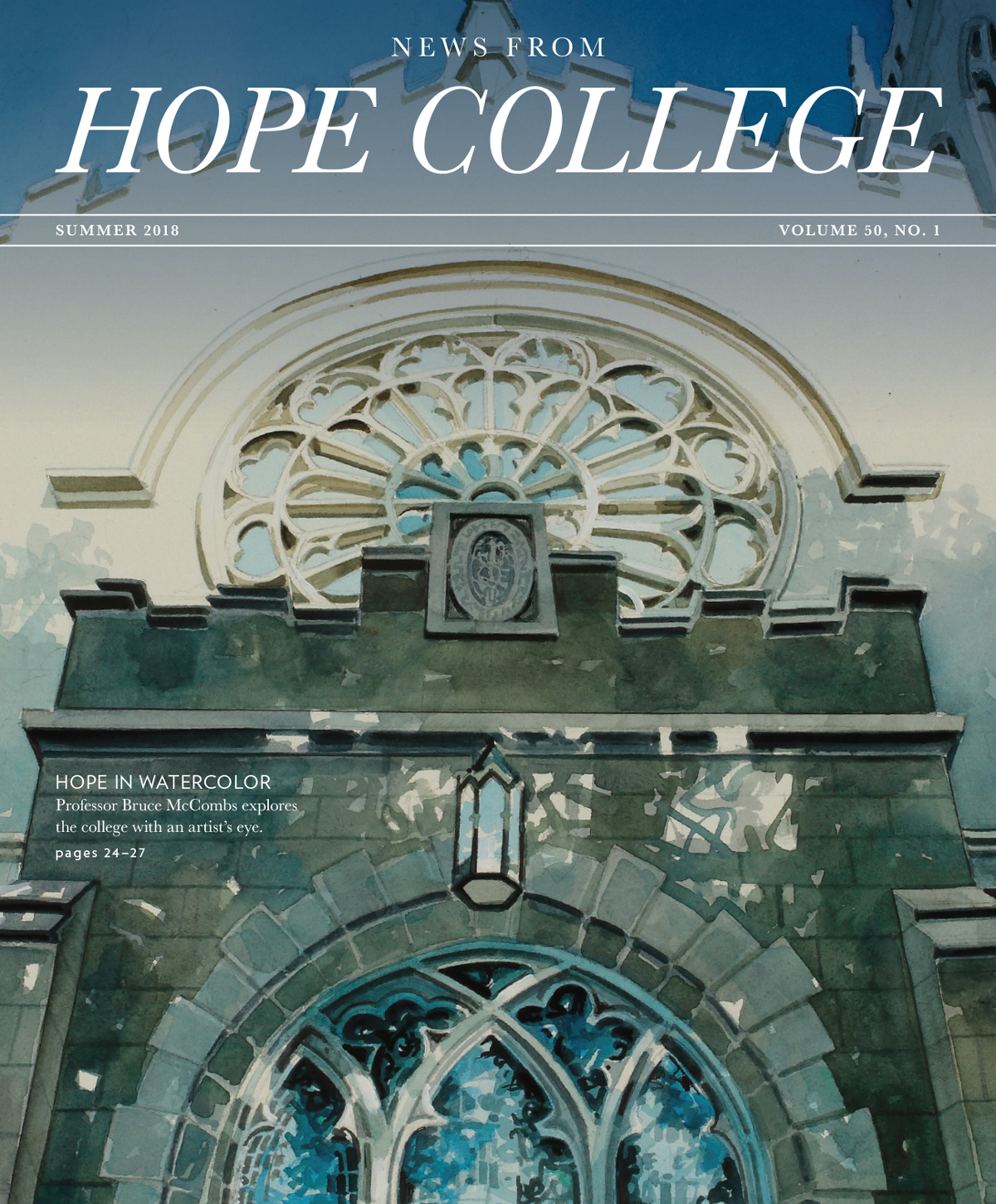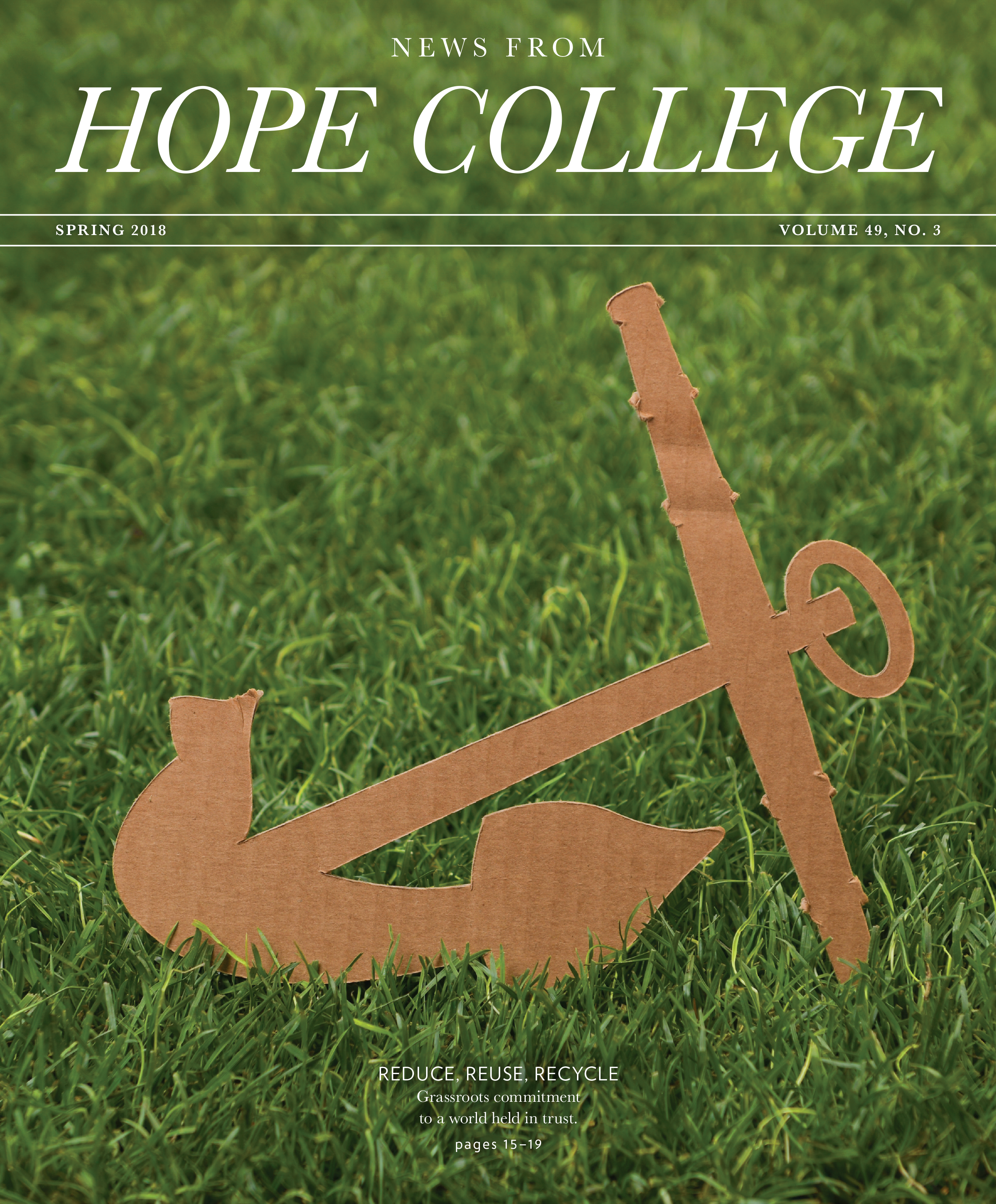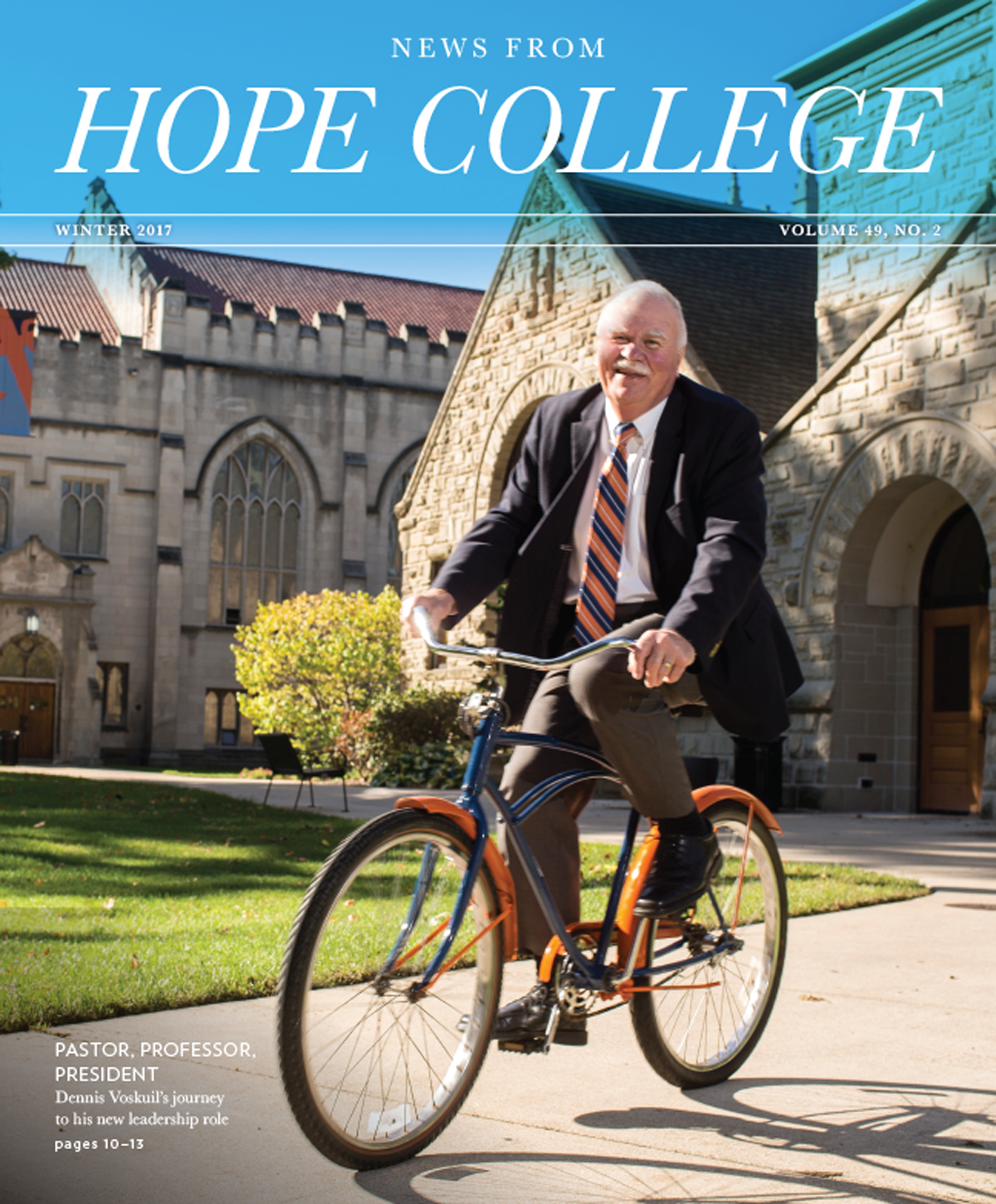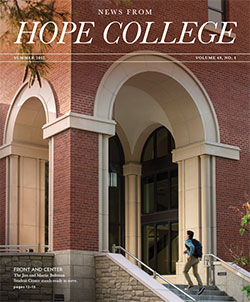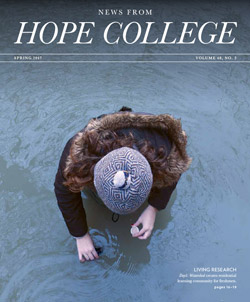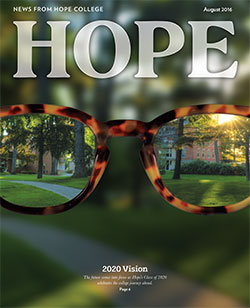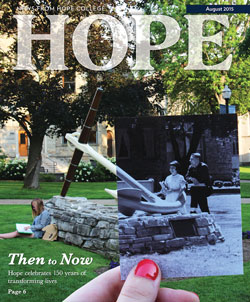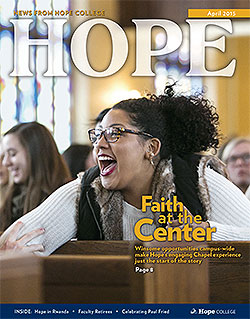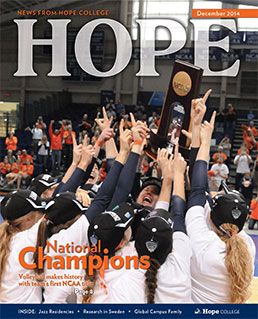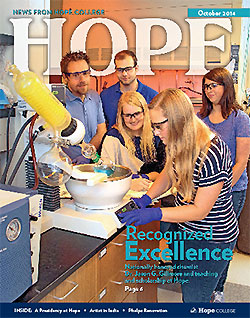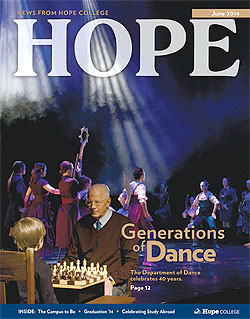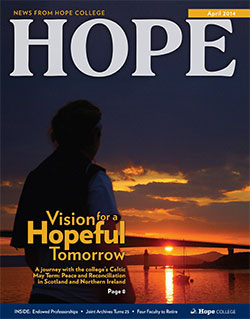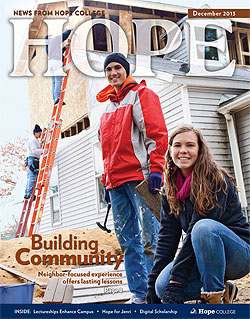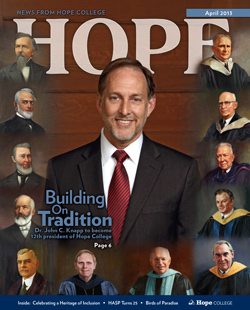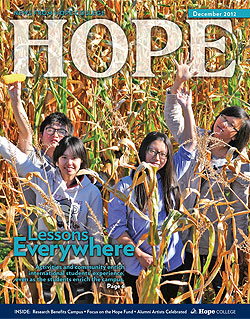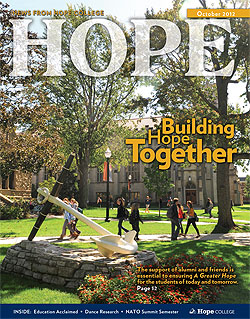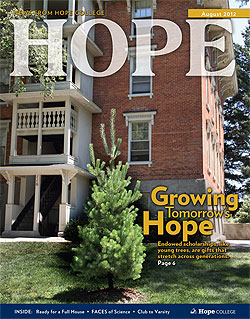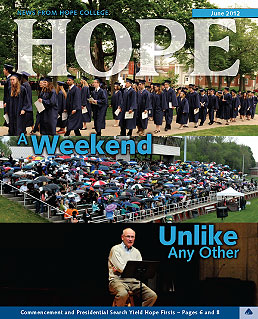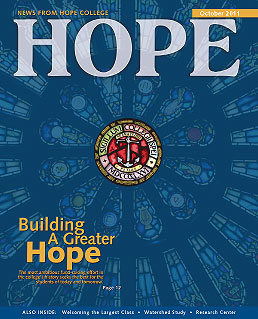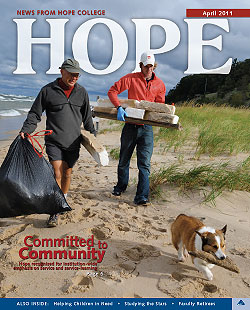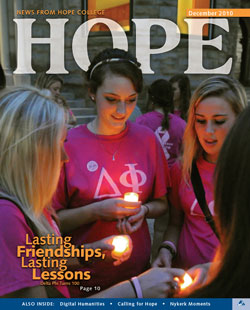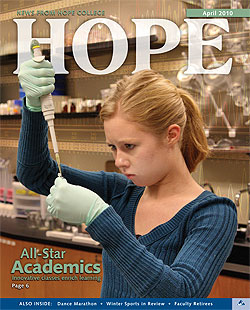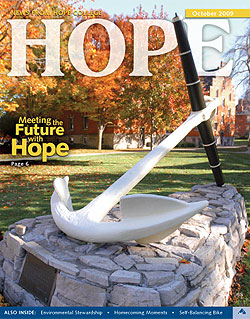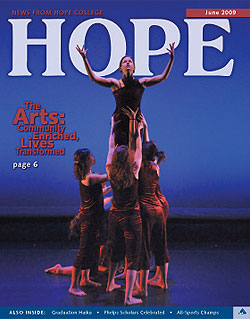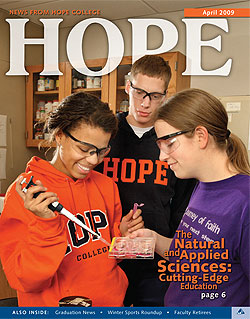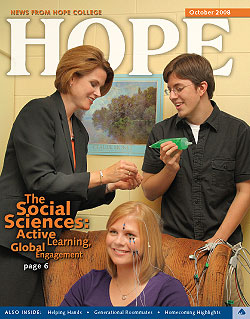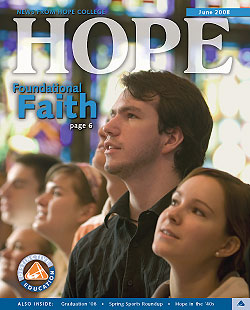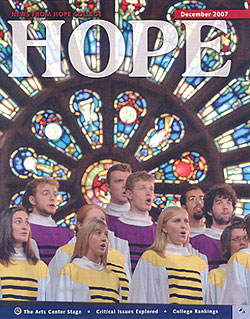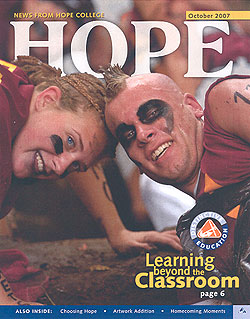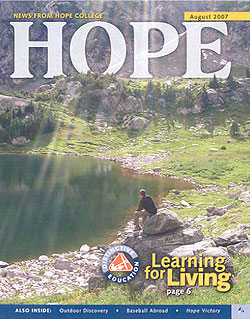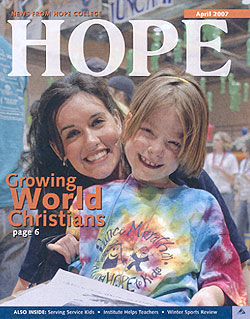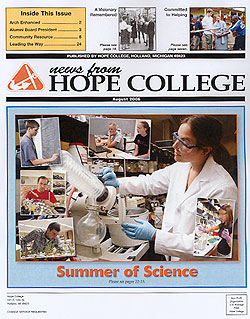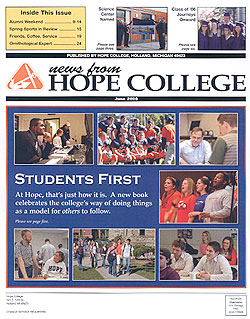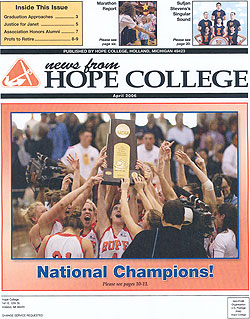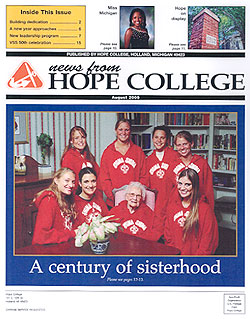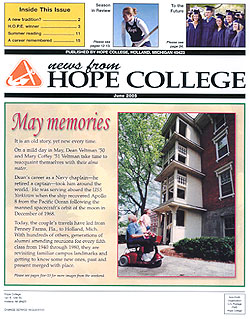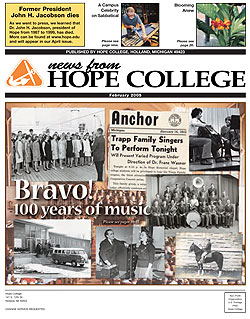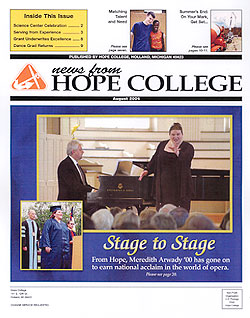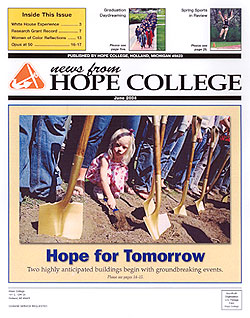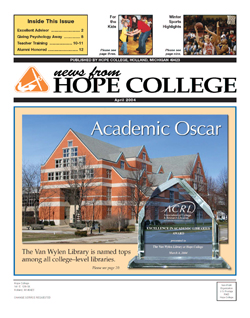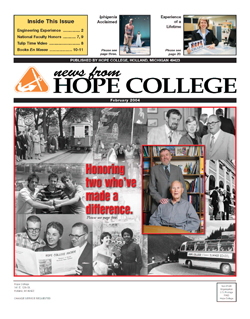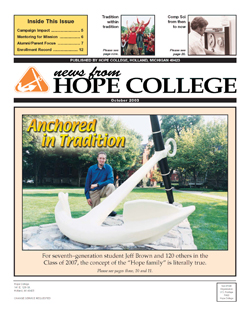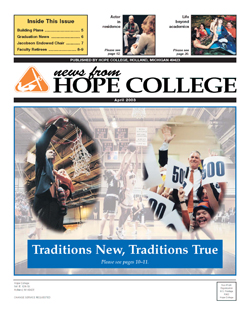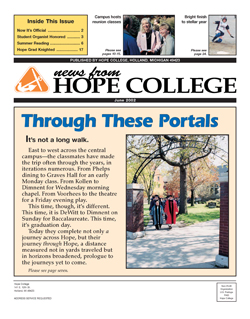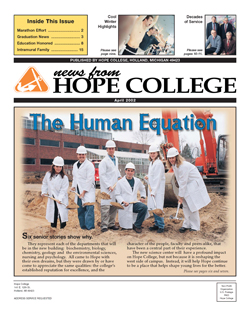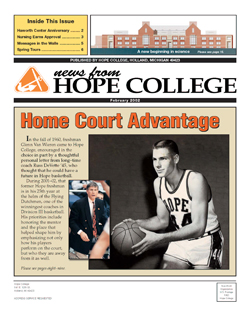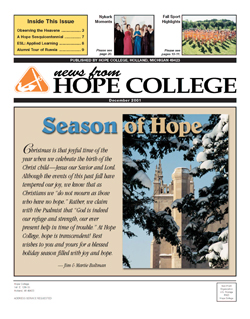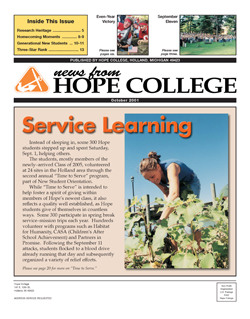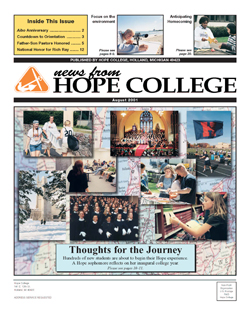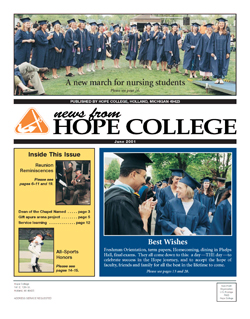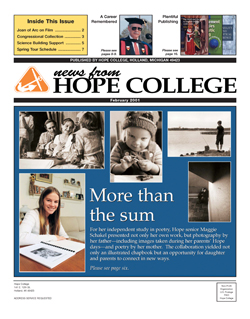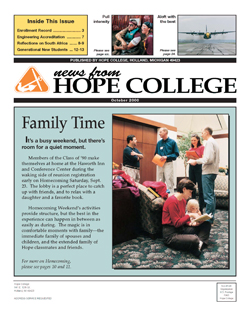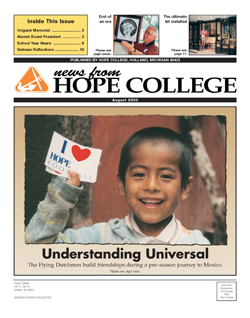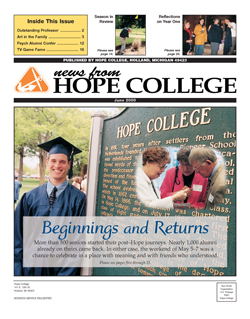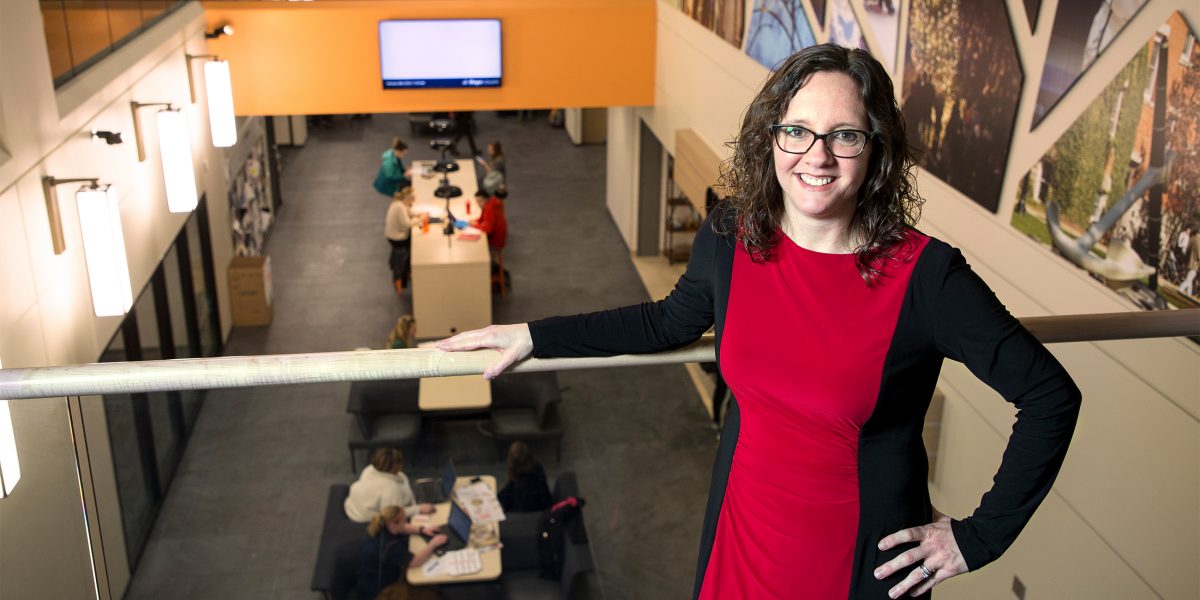The Topic No One Wants to Talk About. Until Now.
Q&A with Sara Dorer
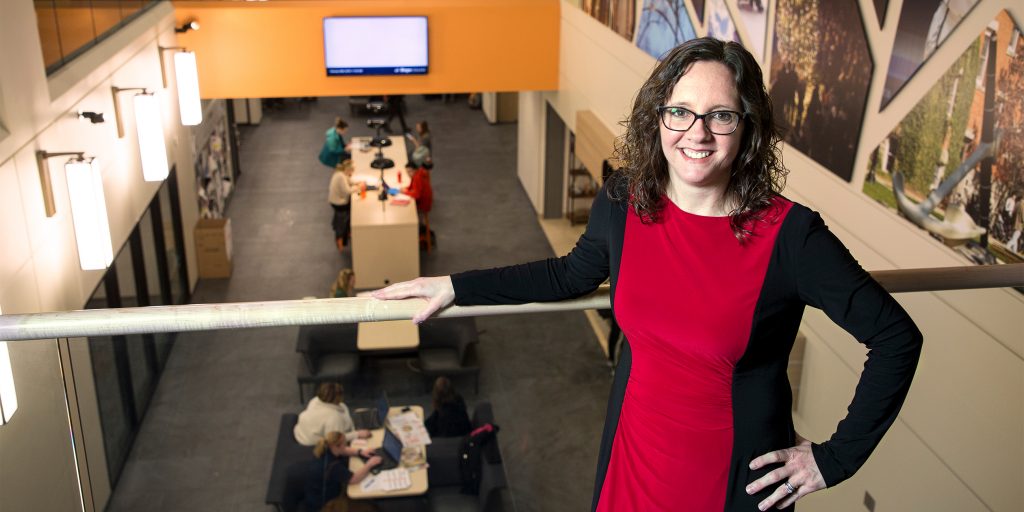
Reports by multiple well-known female celebrities. The trial and conviction of Dr. Larry Nassar. The revocation this past fall of the 2011 “Dear Colleague” letter. High-profile news has made sexual assault a national conversation, building awareness of the problem, empowering victims, and turning a spotlight on organizations and how they respond. To explore how that looks at Hope, News from Hope College spoke with Sara Dorer, who as the college’s Title IX coordinator has a lead role in guiding the process.
The Groundwork
Q. What is Title IX?
A. Title IX is a federal law that passed in 1972 and was established to verify no one be excluded from participation or be denied benefits of education programs and activities on the basis of sex.
In the beginning, most institutions focused on the implementation of this law in regards to athletic opportunities. However, in 2001 the government issued a “Dear Colleague” letter that outlined how sexual harassment and misconduct are forms of discrimination that are also covered under this law. The “Dear Colleague” letter people are more familiar with is the one that was published in 2011, as it provided additional, specific guidelines about how institutions should do this work. In general, though, it seemed to call attention to the fact that many institutions hadn’t done what was necessary based on the 2001 guidance, so it really sparked great movement and change nationally as institutions evaluated their policies and practices for managing reports of sexual harassment or misconduct.
Q. What is your role as Title IX coordinator?
A. Essentially, it is my job to verify the institution is in compliance with all aspects of the federal law. This includes work both to prevent and address issues of discrimination based on sex.
A large piece includes oversight of our grievance procedures, as outlined in our Equal Opportunity, Harassment and Nondiscrimination Policy. It is my job to verify our investigations are fair, equitable and timely. This also involves establishing interim measures when needed and verifying remedy when violations occur. With that said, the essence of my job is equally important, which is to verify we are embracing the spirit of the law in how we do our work. Doing Title IX work at an institution with a Christian mission involves distinctively unique opportunities. Whether we are working with students who are going through the investigation process or providing educational training sessions, we have the opportunity to engage with them about their faith and about how our foundation in Christianity guide these discussions about healthy relationships, interpersonal violence and/or understanding and healing.
By the Numbers
Q. What do we understand about how prevalent sexual assault is on college and university campuses — nationally and at Hope?
A. We believe even one is still too many.
First, we have to acknowledge that research has consistently found that sexual assault and misconduct is an under-reported crime. To address that concern, we here at Hope have conducted two campus climate surveys in the past four years. This helps us get a better picture of what is happening on campus, who students are using for support and what they need from us in terms of on-going prevention and education efforts.
The national average suggests that by the time they have finished college, one in four or one in five college-age women will have experienced some form of sexual misconduct. While our data shows that number is a little lower for students who attend Hope (currently around one in six), we believe even one is still too many.
Q. How do those figures compare, say, with 10 or 15 years ago?
A. I would say from my experience and from speaking to those who were helping with this work before I started, anecdotally we would say reporting has gone up.
Q. What accounts for the change?
A. I think the important thing to consider when we look at reporting trends is what else was going on in the environment.
Hope has put significant resources into the work of Title IX for the past four years. It’s not that we weren’t doing the work before then, we were. Matter of fact, Hope had a solid sexual harassment policy in place long before it was the “thing to do” or before the government increased its attention to this area. However, new attention has been afforded this work, and now we have four professionals on campus who all serve to assist with Title IX efforts: a victim advocate and prevention educator for students, an employee development manager in Human Resources, a dedicated Title IX coordinator and an experienced Title IX investigator. Additionally, we went through a major policy review and overhaul a few years ago, modeling our current policy on best practices. We’ve also created an online reporting form, developed online resources and implemented significant training and prevention programs across campus for both students and staff.
All of those efforts to improve our resources on campus and make people aware of their rights and resources naturally lead to an increase in reporting. It’s not that there are more incidents happening on campus, but we believe people are more aware of their reporting options and resources and are engaging as we hope they would.
Reporting and Investigation
Q. What are the reporting options at Hope if someone has been sexually assaulted or knows someone who was sexually assaulted?
A. There is no one or right way to report, they simply need to get in touch with our office in some way.
They can use the online reporting form, which can be found at hope.edu/titleix, call us, schedule time to meet or send us an email if it’s easiest. We encourage students who have just experienced an incident to contact Campus Safety, as they are always available and trained to help provide immediate assistance and information. Almost all employees on campus are mandatory reporters (including resident assistants), so if a student goes to another employee first not knowing where else to go, that person will inform them that I need to be made aware. The student still gets to decide what happens next, but it is a measure put in place to make sure there is a central location that has a broad understanding of all issues reported on campus.
We also offer several confidential resources on-campus, such as our Victim Advocate, Counseling and Psychological Services, Campus Ministries, and Health Center staff. Sometimes these are the places students feel safest at first, as they process how a situation is impacting them physically, emotionally and spiritually. These are also great resources for friends of survivors who need to know how to best support a friend who has disclosed to them, especially if that person hasn’t told anyone else. We know from our climate survey that students are most likely to disclose to a peer before anyone else. When we provide training on campus we mention this, as we hope friends are prepared to suggest reporting and support options that exist. For an incident that just happened that could call for evidence collection, there are specific time frames and recommended actions involved in the response. If a friend knows to encourage a survivor to call Campus Safety for help, it can make a huge difference down the road.
Q. What if someone is reluctant to report what happened or is worried about other people finding out?
A. We still want them to talk to us.
Nothing has to happen in most cases if they don’t want it to, so we want them to speak to us to verify they understand their options for reporting and support. They are still in full control of what we do next and who may or may not find out. We practice confidentiality, sharing information only with those who need to know to help address the situation. If we need to reach out to others on campus to help provide support or make campus adjustments, we keep the details of the situation private. When students report a crime to our office, we are required to report that information to Campus Safety for the purposes of reporting annual crime statistics, but we do not have to disclose the name of the student(s) if that is what’s desired.
Additionally, our policy speaks very specifically against retaliation. If any person were suspected of behaviors that could be considered retaliation, we would take immediate action to investigate and address such behaviors.
Q. Does the college handle the follow-up, or do the police become involved?
A. This completely depends on the wishes of the survivor. As we know, during the time of an incident someone took away their ability to control what was happening to them.
We want to return the control and empower them to take the course of action that is most appropriate for them as they consider their healing needs, which for some may include seeking justice and for some may not. We explain reporting options to every student we speak to, which includes reporting to law enforcement, opening an investigation on campus, moving forward with both processes or not moving forward with any formal process.
If the student decides they want to report to the police, but also wants an investigation on campus, we work closely with law enforcement to verify we can start our investigation in a timely manner, while also not doing anything that could impact their investigation. We are lucky to have a strong relationship with Holland Public Safety and when we have a student who wants to make a report, they will come to campus to meet with the student, so we can also be close for support as needed.
Q. What does the campus investigation process look like?
A. We modeled our process off of the civil rights investigation model.
Both parties receive equal rights throughout the process. This includes things such as the right to have an advisor present, the right to call witnesses and the right to appeal. Many times the parties meet with me first, prior to the investigation, to review campus resources, and to review the policy and process in detail. They then meet with a trained investigator to share their perspective and recollection of the event in question. While they are never in the room together, they have the opportunity to provide questions to the investigator to ask of the other party and/or any witnesses.
Once the investigation is complete, a report is generated by the investigator, including a recommended finding, and both parties have the right to review the report before it moves to a decision-making panel. Once complete, we redact the report of all names/identifying information and a two-person panel of trained faculty/staff review the report to determine if they agree with the finding recommended by the investigator. If there is a finding of responsibility, that panel also makes a decision around sanctions/outcomes for the responsible party.
There’s been a lot said about the revocation of the 2011 “Dear Colleague” letter. Supporters of the letter say that it helped victims by requiring schools to take reports seriously. Critics say that it was unfair to those who were accused by leading schools to treat them from the beginning like they were guilty.
Q. Has, or how has, its revocation changed the process at Hope?
A.
When the “Dear Colleague” letter was revoked, the Department of Education also provided some new, interim recommendations. We have reviewed what was submitted and did not find anything in our policy that needed to be addressed at this time. Once the final rulemaking process is complete, we will undergo a full review against any new guidance to verify that our policy is in compliance. At this time, we are confident our process has a built-in system of checks and balances. We have trained our investigators to understand the importance of neutrality and fact-finding.
